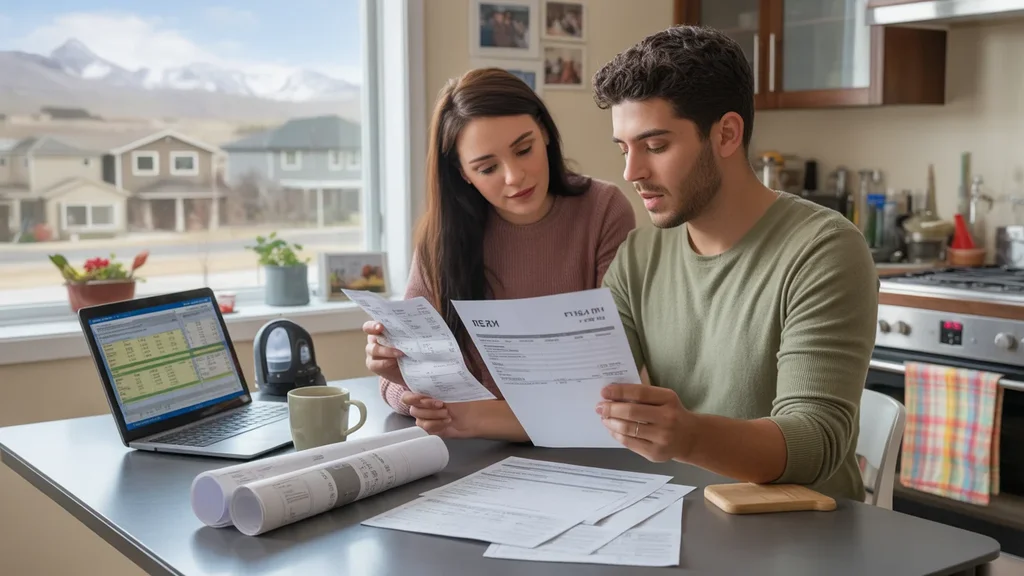Unexpected Living Costs in Lehi

When budgeting for life in Lehi, it’s easy to overlook the hidden fees that can add up each month. Surprise charges in this Utah suburb can tack on an extra $100–$300 per month, depending on your home size, utility usage, and neighborhood. To help you plan ahead, we’ve compiled a checklist of the most common fees that blindside residents:
- Utility surcharges and overage fees
- Metered secondary water for irrigation
- HOA dues and violation fines
- Permit fees for home improvements
- Seasonal costs like bulk trash pickup
By understanding these often-overlooked expenses, you can craft a more accurate budget and avoid unwelcome surprises. Let’s break down each category so you know what to expect as a Lehi resident.
Common Utility and Service Fees
While your core utilities like electricity and gas are straightforward, Lehi homeowners encounter a range of extra fees for municipal services. These charges appear on your monthly utility bill and can fluctuate based on usage:
- Trash and Recycling: $12-18 per month
- Storm Water Runoff: $5-7 based on lot size
- Metered Secondary Water: $20-40 monthly to irrigate your lawn
- Water Overage Fees: if you exceed the base allowance
- Sewer Maintenance: $6-10 per month
- Pressurized Irrigation: for neighborhoods with PI systems
These fees can add up quickly, so be sure to review Lehi’s utility costs and factor them into your housing budget. Luckily, Lehi offers a single consolidated bill for city-provided services, making it easier to track your monthly expenses.
Permit and Inspection Fees
Whether you’re planning a home renovation or renting out your property, Lehi requires permits and charges fees for many residential projects. Expect to pay for things like:
| Project | Estimated Permit Fee |
|---|---|
| Basic home remodel | $200 – $500 |
| Accessory dwelling unit | $750+ |
| Short-term rental license | $250 annually |
| Fence or shed | $50 – $100 |
For a simple bathroom remodel or basement finish, budget around $300-500 in permit and inspection fees. Larger projects like building an accessory dwelling unit (ADU) or mother-in-law suite will run closer to $1,000 when you factor in utility hookups and impact fees.
Neighborhood-Specific or Seasonal Charges
The fees don’t stop once you close on your Lehi home. Most neighborhoods have a homeowners association (HOA) that charges monthly or annual dues. These fees cover amenities like community pools, parks, and snow removal. But they can also come with hidden costs like:
- Fines for violating HOA rules about lawn care, parking, etc.
- Special assessments for major repairs or upgrades
- Separate fees for clubhouse rentals, key fobs, etc.
Some Lehi neighborhoods also have unique seasonal fees. For example, Traverse Mountain residents pay $100+ per year for mosquito abatement to keep the area comfortable for outdoor recreation. Be sure to read your HOA’s fine print and understand what’s included in your dues.
How to Plan for These Hidden Costs
The key to avoiding sticker shock is planning ahead. Start by scrutinizing your Lehi utility bills and identifying any fees beyond the base rates for water, sewer, garbage, and recycling. Watch for seasonal surcharges during the summer irrigation season.
Next, review your HOA’s fee schedule and budget for annual dues, plus a little extra cushion for special assessments or fines. If you’re house hunting, ask the seller for a 12-month history of utility bills and HOA costs so you can budget accordingly.
🏆 Planning Tip: Build a 10-15% buffer into your monthly housing budget to account for hidden fees, seasonal charges, and annual permits in Lehi.
FAQ: Hidden Costs of Living in Lehi
- Do HOA fees include everything? Not always. Read the fine print, as some HOAs charge extra for amenities, violations, etc.
- What’s the most overlooked city fee? Secondary water fees for irrigation catch many new residents by surprise.
- Can landlords charge separately for trash or sewer? Yes, unless it’s included in your lease agreement. Clarify before signing.
Avoiding Surprise Charges in Lehi
While hidden fees are a fact of life in Lehi, you can minimize surprises by doing your homework. Understand your neighborhood’s unique costs, fees, and billing quirks. Watch for seasonal surcharges and budget for occasional special assessments.
Most importantly, give yourself a buffer to absorb those unexpected expenses. With a little planning, you can keep Lehi’s hidden fees from busting your budget.
